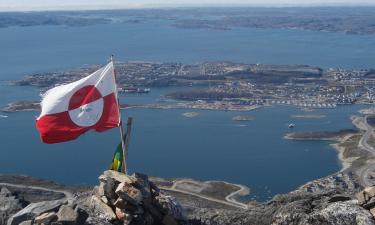Russia and Turkey to be directly involved in military confrontation in Syria
Russia and Turkey could be drawn into a direct conflict in Syria due to the escalation of the crisis in the war-torn country.
"The surge in fighting has raised the prospect of another violent, destabilizing front reopening in the Middle East at a time when Israel is fighting Hamas in Gaza and Hezbollah in Lebanon, conflicts that have repeatedly threatened to ignite an even wider regional war. It also risks drawing Russia and Turkey — each with its own interests to protect in Syria — into direct heavy fighting against each other," the Associated Press reports.
On November 28, Turkey-backed Syrian militants launched a major offensive on government positions in the Aleppo province. The rebels captured 13 villages and the largest Syrian army base in the area. It was reported that it was Turkey that gave the green light for the offensive of the Syrian rebels.
In three days, the Syrian Armed Forces have eliminated about a thousand militants and continued to destroy strongholds of the Jabhat al-Nusra terrorist group (recognized as a terrorist organization and banned in Russia) in the vicinity of Aleppo and Idlib.
On December 1, government troops operating in the north of Hama province, bordering the provinces of Aleppo and Idlib, stopped the militants from breaking into the city and destroyed dozens of terrorists, holding back their advance.
The same day, the Russian Aerospace Forces together with the Syrian Armed Forces launched missile and bomb strikes on areas where militants and their equipment were concentrated. Over 320 militants and 63 units of equipment were obliterated in Idlib, Hama and Aleppo.
Syrian President Bashar al-Assad promised to defeat terrorism on the territory of the republic, regardless of who its supporters and sponsors might be.
However, the representative of the Turkish Ministry of Foreign Affairs Oncu Keceli said that Ankara sought to avoid an unwanted escalation of tensions in the region.
During a visit to Damascus, Iranian Foreign Minister Abbas Araghchi assured Syrian President Bashar al-Assad that Tehran was ready to support the country in a counteroffensive. King Abdullah II of Jordan and UAE President Sheikh Mohammed bin Zayed Al Nahyan also vowed to support Assad.
The Russian forces help the Syrian army to repel rebel attacks in the provinces of Aleppo, Idlib, and Hama.
Details
Turkey shares its longest common border with Syria; various geographic and historical links also tie the two neighbouring countries together. The traditionally tense relations between Turkey and Syria had been due to disputes including the self annexation of the Hatay Province to Turkey in 1939, water disputes resulting from the Southeastern Anatolia Project, and Syria's support for the Kurdistan Workers' Party (abbreviated as PKK) and the now-dissolved Armenian Secret Army for the Liberation of Armenia (abbreviated as ASALA) which has been recognised as a terrorist organisation by NATO, the EU, and many other countries. Relations improved greatly after October 1998, when PKK leader Abdullah Öcalan was expelled by the Syrian authorities. However, the Syrian civil war has once again strained relations between the two countries, leading to the suspension of diplomatic contact. A serious incident occurred with the Syrian downing of a Turkish military training flight in June 2012, resulting in Turkey calling an emergency meeting of NATO.
Subscribe to Pravda.Ru Telegram channel, Facebook, RSS!





